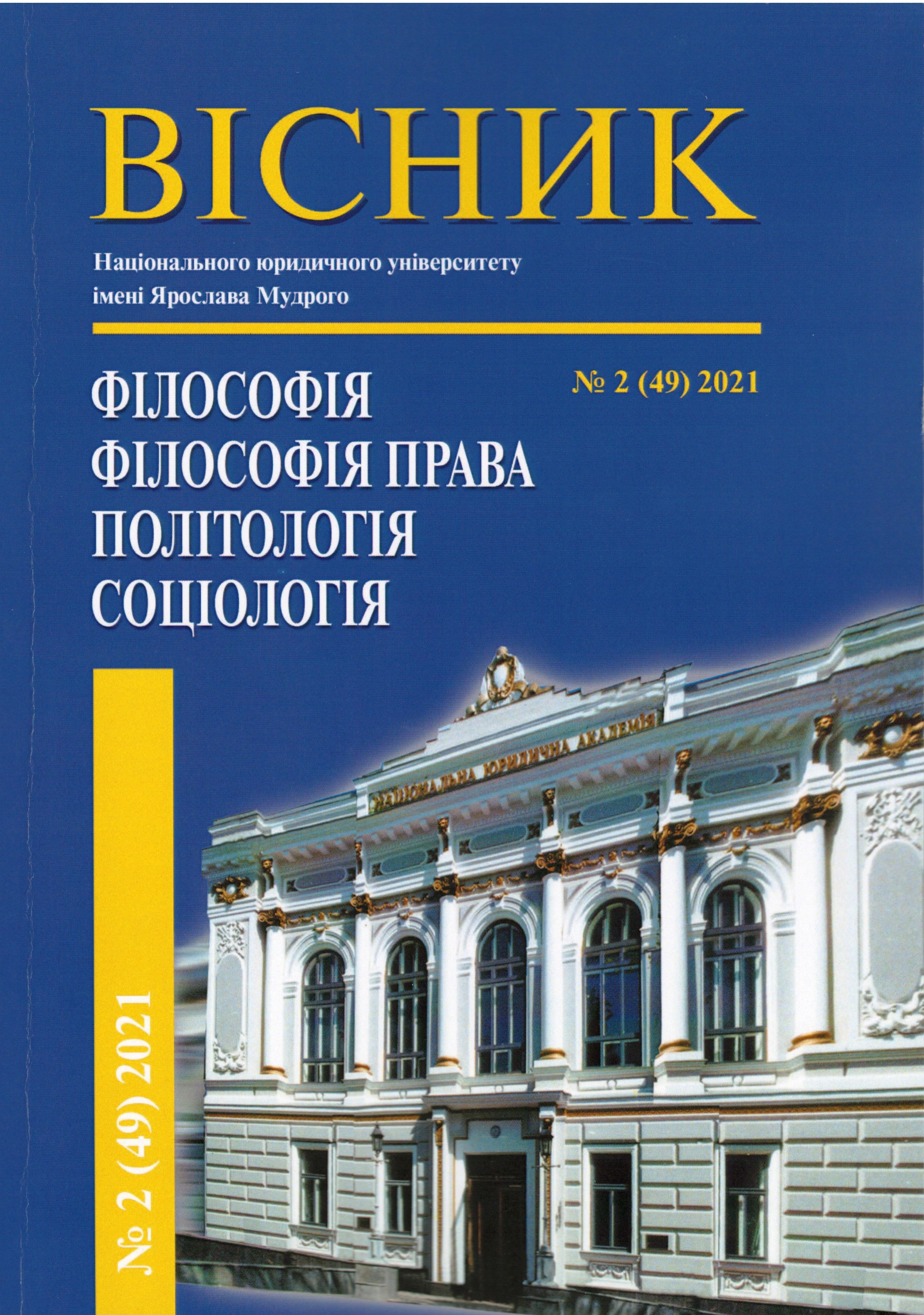СОЦІОКУЛЬТУРНА ІДЕНТИЧНІСТЬ ПОСТМОДЕРНУ: ПРОБЛЕМА СОЦІАЛЬНОГО КОНСТРУЮВАННЯ
SOCIOCULTURAL IDENTITY POSTMODERN: PROBLEM OF SOCIAL CONSTRUCTION
Author(s): Oksana Anatoliivna StasevskaSubject(s): Culture and social structure , Sociology of Culture, Identity of Collectives
Published by: Національний юридичний університет імені Ярослава Мудрого
Keywords: sociocultural identity; identification; construction of identity; identity politics; epoch of modern; epoch of postmodern;
Summary/Abstract: Problem setting. The relevance of our study is due to the excessive popularity of the concept of «socio-cultural identity» as a scientific term and tool for studying the postmodern world. As a concept of socio-humanitarian knowledge, it remains one of the most uncertain and at the same time actively used in modern research for theoretical and practical analysis and typology of socio-cultural processes. Understanding the specifics of socio-cultural identity and its formation in postmodern conditions is one of the most relevant and acute topics of modern science, which can provide a full understanding of the essence of this world.Recent research and publications analysis. Representatives of almost all humanities are involved in the discussion about identity. The fundamental development of the concept of sociocultural identity of the postmodern world is contained in the works of J. Habermas,E. Giddens, E. Erickson, A. Etzioni, M. Castells, F. Cassidy, S. Huntington, E. Smith,F. Fukuyama, W. Hesle and etc. Ukrainian researchers have also contributed to understanding the problem of identity. They have a large number of works that are directly or indirectly related to the phenomenon of identity and have such a wide variety of topics that it is not possible to present it exhaustively. A specific feature of their work is the indepth attention to everything related to the national component of socio-cultural identity.The main result of the accumulation of knowledge about socio-cultural identity by the social sciences and humanities is the understanding that adequate research of this phenomenon is possible only in an interdisciplinary space. The tendency to comprehend identity in science persists and in parallel new directions of research are developing – first of all, it is a study of the social construction of identity in the postmodern era.Paper objective. The purpose of our study is resource of the peculiarities of the transformation of socio-cultural identity as an object and subject of social construction, which has specific features in the postmodern conditions, which has specifics in Ukrainian society.Paper main body. The tendency to study identity in a socio-cultural perspective was formed at the end of the XX century, when it began to be positioned as a set of positive signs of combining oneself with a community based on a common historical past and cultural values. Socio-cultural identity has a personal, individual level and social, group and combines different modifications that depend on its basic criteria – civilization,regional, civic, political, ethnic, national and others. An indisputable sign of the times is the active formation of a hybrid, multiple identity (national, regional, civilizational), when different criteria are used for self-identification, as well as mosaic identity, when selfdetermination criteria are quickly adjusted according to the new life situation.Postmodern is a historical epoch that begins in the XX cent. and continues to this day,increasingly acquiring such features as dynamism, nonlinearity, ephemerality and conflict generating development of socio-political processes, exacerbation of territorial,demographic, national, religious, environmental and other problems. Transformational processes of the ending of the XX century led to a weakening of its clarity and the formation of «soft», «fluid» identity, which is associated with the departure into the past of the classical forms of class structure of modern society.The arena of the struggle for identity is politics, various economic, political and social processes that act as mechanisms for constructing socio-cultural identity. The construction of identity is directly based on the problem of social construction of reality. The transformation of socio-cultural identity of the postmodern is due to the following features of the era: pluralization; continuous dynamism, variability that often destroys, devalues,marginalizes traditional basic spiritual values; bifurcation of cultural space; absolutization of freedom and opportunities for individual choice; high level of tolerance; formalization and virtualization of identity, its blurring. Based on this, we identify the leading features of socio-cultural identity of the postmodern: first, personalization, individualization of identity, which is seen as a personal project that allows the individual full self-expression;secondly, flexibility, plasticity, variability.Scientists have repeatedly pointed out the lack of a project of postmodern identity acceptable to Ukrainian society, the need to construct a «new» Ukrainian identity, however,understanding this problem in the context of globalization, called for the uniqueness of the Ukrainian nation.Conclusions of the research. The debate about socio-cultural identity in Ukraine is growing and gaining popularity due to social crises and constant transformations, and, in our opinion, because for a long time (after independence) identity policy was not a priority and the elite did not care about its construction.The Ukrainian elite, trying to build a sociocultural identity in postmodern society, must use the full potential of cultural space –historical and cultural attractions, language, science (especially the humanities), literature and art, education, museums – to develop a consolidated identification project. The solution to the problem of building a socio-cultural identity in Ukraine can be manifested in two directions – a radical change of identity in accordance with the complete modernization of society in post-Soviet times; – creation of non-conflict (low-conflict) socio-cultural identity on the basis of continuity and preservation of cultural tradition, which could become an effective resource for the development of society
Journal: Вісник НЮУ імені Ярослава Мудрого. Серія: Філософія, філософія права, політологія, соціологія
- Issue Year: 49/2021
- Issue No: 2
- Page Range: 215-233
- Page Count: 19
- Language: Ukrainian

